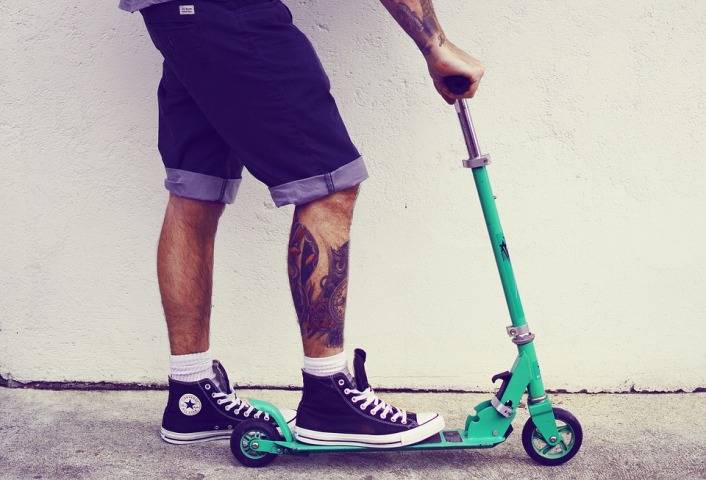Injuries from e-scooters cost health system higher than licencing fee
The research, from the University’s Faculty of Medical Health Sciences, shows a total of 770 reported injuries between October last year and April this year including GP visits and hospital attendances.

- Country:
- New Zealand
Injuries from electric scooters in the Auckland region cost the health system upwards of $1 million in less than a year, a study from the University of Auckland shows.
The research, from the University’s Faculty of Medical Health Sciences, shows a total of 770 reported injuries between October last year and April this year including GP visits and hospital attendances.
The study reveals the most common types of injuries, who were most likely to be injured and the number of injuries where alcohol was thought to be a factor. It is the first study to reveal costs and injury data from e-scooters in New Zealand.
Of the 770 people injured, 246 (31.9 percent) presented to Auckland City Hospital’s Emergency Department, with 75 (30.5 percent) of those requiring admission and inpatient care. Forty-nine (19.9 percent) people required at least one operation and 105 (42.7 percent) specialist follow-up care.
Hospital presentations as a result of injury from e-scooters used up a total of 5,569 bed-hours in Auckland and cost Auckland City Hospital alone $608,843. That last figure is for six months only because data for April wasn’t available.
Study lead Associate Professor Colleen Bergin, from the faculty’s School of Medical Science, says the impact of electric scooters since they were introduced last year has been significant.
“Including admission, follow-up care, and radiological imaging, these figures show the extent that Auckland City Hospital is bearing the brunt of increased costs due to e-scooter injuries,” she says.
Combined costs for the whole Auckland region from either GP visits, hospital bed hours or ACC claims from e-scooters were $1,303,155 over the seven months.
Males were the most likely to suffer injury, at 56 percent of the total. Riders ranged in age from 7 years old to 78 years old. The most common injuries were lacerations, strains, sprains, and bruises but almost five percent (12 people) had concussion or brain injury.
Of 75 people admitted to Auckland City Hospital, which, because of its central location has borne the brunt of treating e-scooter injuries, 49 (19.9 percent) required an operation, some of them multiple times. A total of 99 people had at least one fracture, some more than one.
Alcohol was thought to be a factor in 59 out of 220 cases presenting at the Emergency Department of Auckland City Hospital, a rate of 26.8 percent.
Data from Auckland City Hospital also shows 90 percent of injuries were due to loss of balance which included riding at excessive speed. Vehicle collisions accounted for just 1.6 percent of injuries requiring hospital treatment.
Two out of the 246 presented to the hospital were injuries to pedestrians from e-scooter collisions.
Overall, since the introduction of e-scooters up until April this year, the study estimates 60 injuries per 100,000 trips, says study co-author Dr. Mark Bekhit.
“Based on the approximate number of e-scooters in the Auckland region, we estimate that healthcare costs per e-scooter are likely to be at least a factor of ten higher than the current licensing fee per e-scooter.”
The data in the study comes from the Auckland District Health Board and ACC. Only medical or claims records that specifically mentioned some version of the term ‘electric scooter’ were included, with more general terms such as ‘scooter’ or ‘moped’ excluded.
Emergency Medicine specialist Dr. James Le Fevre says a clear message from the study is ‘don’t drink and ride’.
“With 26.8 percent of injured e-scooter riders in this study thought to have consumed alcohol, a motorized narrow platform on wheels, no helmet, and alcohol is a dangerous combination.”










